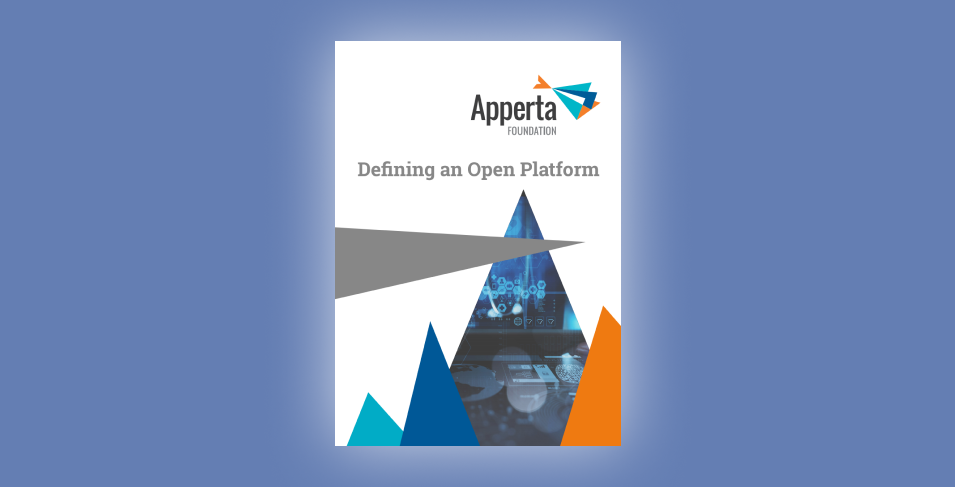
02 Dec Defining an Open Platform
The Apperta Foundation, a not-for-profit organisation supported by NHS England and NHS Digital led by clinicians to promote open systems and standards for digital health and social care, aims to make data, information and knowledge in IT systems open, shareable and computable to facilitate the creation of innovative digital services to transform the delivery of health and social care. An individual user (patient or service user, family or informal carer or health and care worker or professional) would like to be able to choose a set of applications from multiple vendors that best support their needs. An open platform enables applications from multiple vendors to be orchestrated to work together to meet an individual user’s needs.
In “Defining an Open Platform,” Apperta makes the case for open platforms defines 8 principles to which an open platform should adhere in order to meet the need of all stakeholders:
-
-
- Open Standards Based – Implementation should be based on agile open standards. Any willing party should be able to use these standards without charge to build an independent, compliant instance of the complete platform.
- Shared Common Information Models – There should be a set of common information models in use by all instances of the platform, independent of any technical implementation.
- Supporting Application Portability – Applications written to run on one platform should be able to run on another platform that has been independently developed.
- Federatable – It should be possible to connect any implementation of the open platform to all others that were independently developed, in a federated structure, to allow the sharing of appropriate information and workflows between them.
- Vendor and Technology Neutral – Standards should not depend on particular technologies or require components from particular vendors. Anyone building an implementation of the open platform may elect to use any technology and may choose to include or exclude proprietary components.
- Supporting Open Data – Data should be exposed as needed in an open, shareable, computable format in near to real-time. Implementors may choose to use this format natively in their persistence/storage layer of the platform itself or meet this requirement by using mappings and transformations from some other open or proprietary format.
- Providing Open APIs – The full specification of the APIs (the means by which applications are connected to the platform) should be freely available.
- Operability (as in DevOps) – The platform should support the principles of operability (this is about the qualities of a system that enables applications to operate well throughout their full life cycle). Software systems which follow software operability good practice will tend to be simpler to operate and maintain, with a reduced cost of ownership, and almost certainly fewer operational problems.
-
Read the full document at https://apperta.org/assets/Apperta_Defining_an_Open_Platform.pdf.
